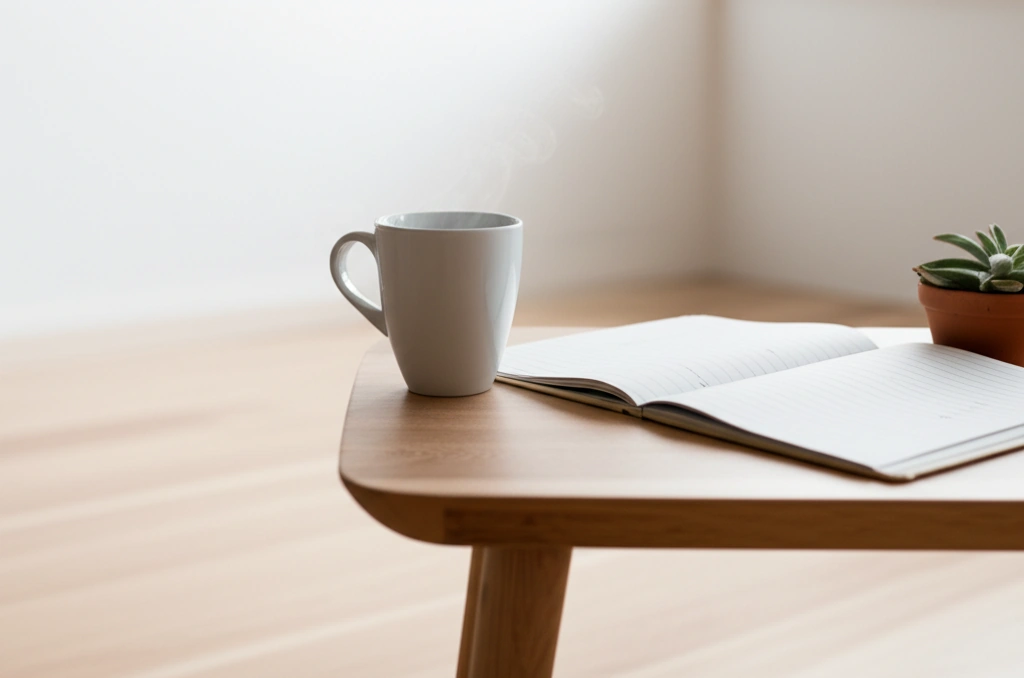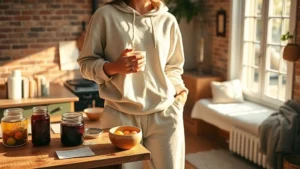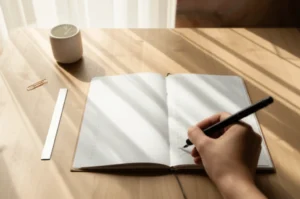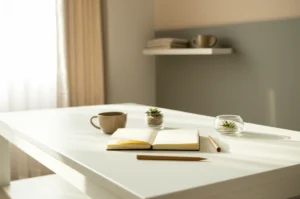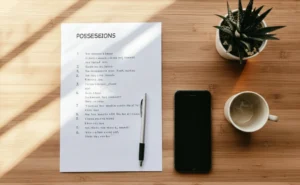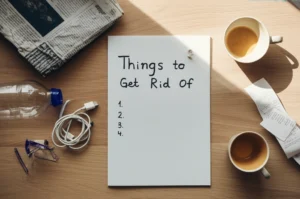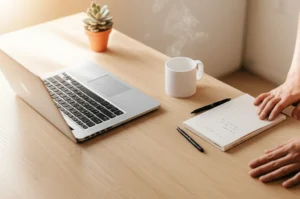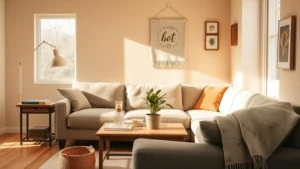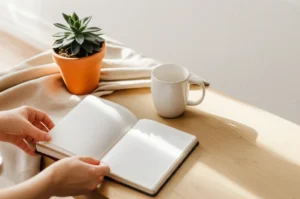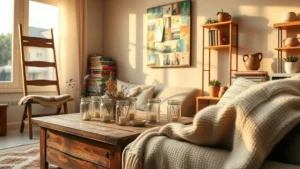Have you ever felt overwhelmed by stuff? Too many things cluttering your space, your mind, and honestly, your whole vibe? I’ve been there—scrambling to find things in a messy room, feeling the stress pile up like laundry waiting to be folded. Well, here’s the thing: minimalism isn’t about sacrificing joy or going ultra-barebones. It’s about making space—physically and mentally—for what actually matters. And that’s exactly why minimalism is a better way of life.
In this article, I’m not going to bore you with a history lesson about minimalism. Instead, let’s dive into the real, compelling reasons why embracing minimalism can truly change your life. We’ll chat about its undeniable benefits, some of the challenges you might face (because yeah, it’s not all sunshine and roses), and how psychology plays a key role in why it works. Ready? Let’s go.
What Minimalism Means
First off, when most people hear “minimalism,” they think of empty rooms, plain furniture, or giving up everything fun. But minimalism is really just a mindset—a way to focus on what you need and love instead of what feels like endless “stuff.” It’s not about deprivation; it’s about intention.
Minimalism vs. Decluttering vs. Voluntary Simplicity
Decluttering is the handy spring cleaning part—getting rid of the junk you don’t want or need. Voluntary simplicity often includes choices beyond possessions, like simplifying commitments or reducing eco-footprints. Minimalism ties these together but centers on living with purpose and meaning, trimming away distractions that hide what’s truly important.
Different Kinds of Minimalism
You don’t have to overhaul everything all at once. Some people start with their physical space, creating a clean home. Others tackle digital clutter, like an overflowing inbox or endless app notifications. A capsule wardrobe? That’s a minimalist twist for your closet. Even paring down social commitments fits the bill. Each approach helps clear the mental fog, too.
Big Benefits of Minimalism
Less Stress, Better Mental Health
Here’s a fact: clutter literally raises your stress hormone, cortisol. Studies have shown people with messy homes often carry higher cortisol levels throughout the day, which can lead to anxiety, headaches, and even gut issues. Clearing out excess stuff doesn’t just tidy your home—it calms your mind.
More Focus and Creativity
Ever tried writing or working with a chaotic desk? It’s tough. Minimalism helps boost focus by removing distractions. With fewer objects demanding attention, your brain can zero in on what matters. This drop in mental noise frees you up to think deeper, be more creative, and stay present—even achieve that cherished “flow” state.
Financial Freedom and Smart Choices
When you buy less stuff and think carefully about what you really need, your wallet feels it too. Minimalism naturally cuts impulsive spending and clutter that costs you time and money to maintain. This isn’t about being cheap—it’s about choosing quality, meaning, and freedom over mindless consumption.
Stronger Relationships and More Time
Less time spent managing possessions means more time for people. By simplifying your surroundings and schedule, you can be more present with family and friends. Minimalism can teach us to prioritize meaningful connections rather than distractions.
Environmental Gains
Living with less helps the planet, too. Consuming less means generating less waste and lowering your carbon footprint. If you care about sustainability, minimalism aligns beautifully with those values.
The Psychology Behind Minimalism
Why We’re Drawn to Minimalism
People gravitate toward minimalism for all sorts of reasons—burnout, the need for control, or a desire to live more authentically. Millennials, in particular, have found fulfillment in minimalism amid environmental concerns and social pressures. Research has found minimalism can enhance well-being, especially when it’s about focusing on experiences rather than possessions psychology of minimalism.
The Brain’s Response to Stuff
Ever heard of decision fatigue? Having too many choices—think: hundreds of items in your closet—makes your brain tired and less effective. Minimalism simplifies decisions, easing mental load. Also, we’ve got emotional attachments to stuff, which can make letting go tough, but learning to prioritize helps us break free from these invisible chains.
Pros and Cons of Minimalism
Before you jump all in, let’s look honestly at the good and not-so-good parts. It’s not a one-size-fits-all fix.
Pros
- Clear, peaceful spaces. Homes feel breathable and calm, making daily life easier.
- More discipline and self-awareness. You get to know what you really want versus what you’re used to wanting.
- Money saved and less waste. Great for your budget and for the environment.
- Stronger focus and productivity. Less distraction means you get more done and with joy.
Cons
- Social misunderstandings. Friends or family might not get why you’re giving things up—sometimes it feels lonely.
- Risk of overthinking. The quest to be “perfectly minimalist” can become stressful.
- Hard transition. Clearing out emotional stuff and habits takes time and patience.
- Some find it isolating. Because it challenges cultural norms about success and happiness.
If you want more on the balanced view, there’s a thorough guide on the pros and cons of minimalism that covers these points beautifully.
Starting Minimalism: Small Steps to Get You Going
You don’t need to sell all your belongings overnight or live out of a suitcase. Try this: pick one room or even one drawer and start sorting. What do you actually use? What sparks joy or serves a purpose?
Here’s a quick weekend mini-challenge:
- Set a timer for 20 minutes.
- Pick out items you haven’t used in the past year.
- Decide to donate, sell, or recycle them.
- Notice how freeing the cleared space feels—and how your mood lifts.
If you want a gentler, longer pace, a 30-day plan with daily micro-tasks helps build habit without overwhelm. Maintain your new minimalist lifestyle by adopting rules like “one-in, one-out” to keep clutter at bay.
Real Stories: How Minimalism Transformed Lives
I love hearing about the small yet powerful ways minimalism reshapes daily routines. Take someone who stopped buying more clothes and sold extra books—they found they actually read more, spending less money and feeling lighter.
Many people share how minimalism helped them stress less, clean faster, and move more easily—like uprooting overseas without lugging tons of stuff around disadvantages of minimalism also exist, but with awareness, these challenges become manageable.
Scientific studies back this up, too. For example, removing clutter reduces stress hormones and boosts mental clarity, a pretty compelling case for simplifying your space.
When Minimalism Might Not Fit
Minimalism isn’t the perfect fit for everyone. Cultural values, family situations, and personal quirks mean it’s okay to adapt or mix it with other approaches like curated living or mindful consumerism.
Maybe instead of emptying your entire home, you focus on decluttering just one aspect of your life, like tech or social commitments. The goal isn’t perfection but balance.
Resources and Next Steps
If you want to explore deeper, there are excellent resources that thoughtfully examine the psychology of minimalism, and provide insight into the pros and cons of minimalism. For a realistic look, check out the disadvantages of minimalism to understand potential pitfalls and how to avoid them.
Minimalism isn’t about losing things; it’s about gaining your life back. It’s about creating space to breathe, dream, and focus on what truly fills your cup. So, why not take just one small step today? You might be surprised at how much better it feels.
What do you think? Have you tried minimalism or felt weighed down by stuff? If you have any questions or want to share your experience, I’m here to chat!

